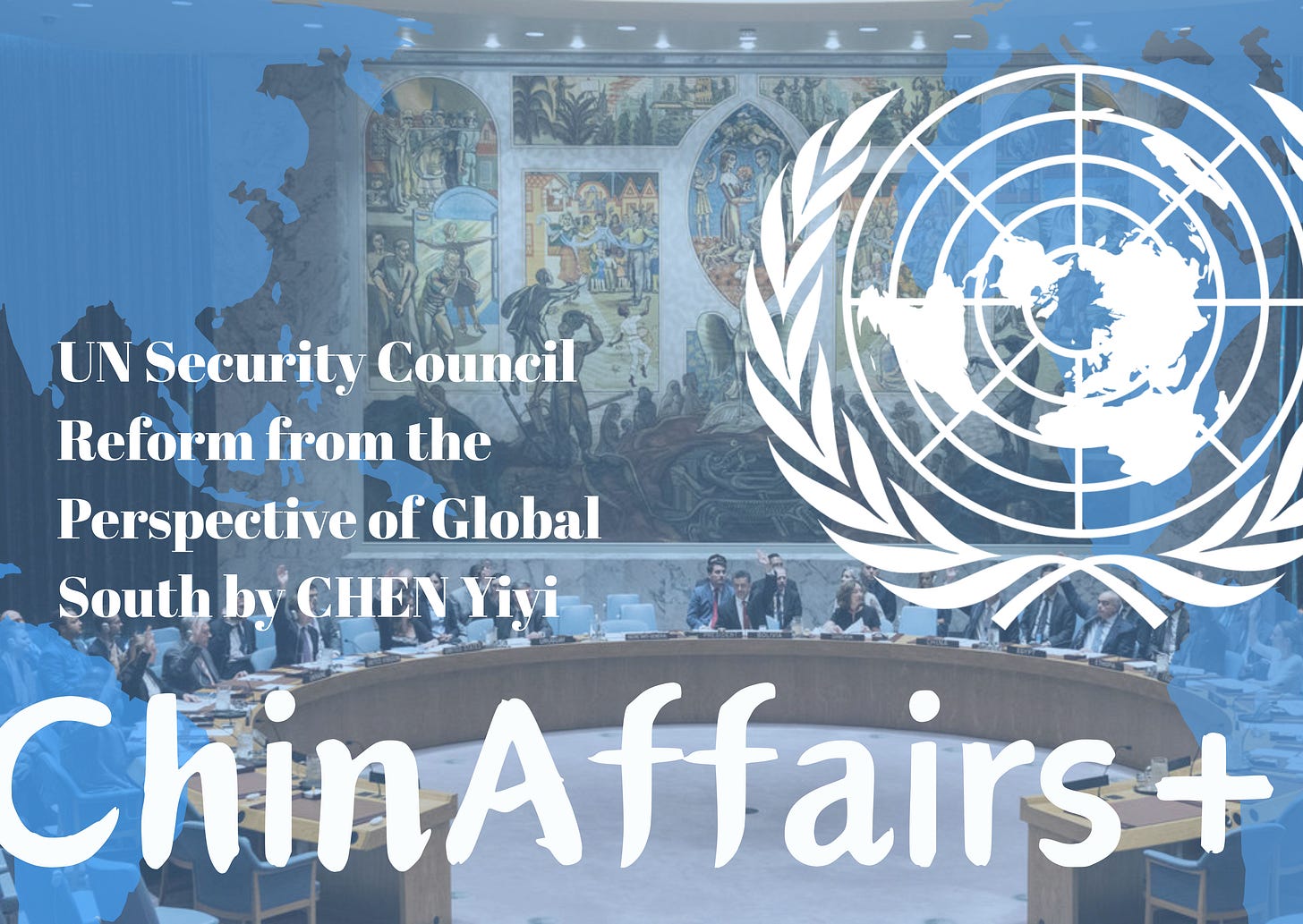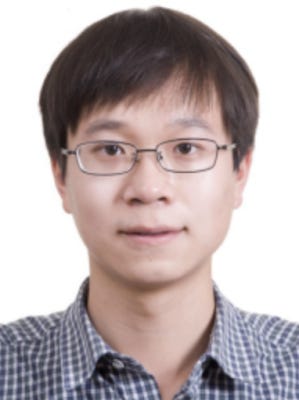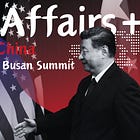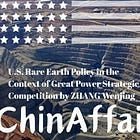UN Security Council Reform from the Perspective of Global South by CHEN Yiyi
This article is relevant to current debates on global governance and the changing balance of power in the international system.
Welcome to the 64th edition of our weekly newsletter! I’m SUN Chenghao, a fellow with the Center for International Security and Strategy (CISS) at Tsinghua University, Council Member of The Chinese Association of American Studies, a visiting scholar at Paul Tsai China Center of Yale Law School in 2024 and Munich Young Leader 2025.
ChinAffairsplus is a newsletter that shares articles by Chinese academics on topics such as China’s foreign policy, China-U.S. relations, China-Europe relations, and more. This newsletter was co-founded by my research assistant, ZHANG Xueyu, and me.
Through carefully selected Chinese academic articles, we aim to provide you with key insights into the issues that China’s academic and strategic communities are focused on. We will highlight why each article matters and the most important takeaways. Questions and feedback can be addressed to sch0625@gmail.com
Today, we have selected an article written by Chen Yiyi on UN Security Council Reform from the Perspective of Global South.
Summary
The Global South seeks to reform the UN Security Council. Proposals have been made about optimizing the use of the veto power of the five permanent members, increasing the number of permanent and non-permanent members, increasing the transparency of the Security Council’s operations, and addressing issues related to the Global South. Countries in the Global South exert flexible and diverse influence on Security Council reform by promoting agenda-setting on issues of concern through platforms inside and outside the Council, fully participating in its committees and working groups, and strengthening interaction between international organizations they lead and the Council. However, differences in opinion, discourse, and competition for influence within the Global South, as well as the potential for competition between the international organizations led by Global South countries and the Security Council, hinder their deep participation in Security Council reform. Additionally, the new dynamic of competition and cooperation among major powers poses a significant challenge.
Why It Matters
States in the Global South have long occupied a minority and disadvantaged position within the institutional arrangements of the UNSC. This structural imbalance not only exposes a representational crisis in the current international security framework but also further affects the effectiveness of global security governance.
This article is relevant to current debates on global governance and the changing balance of power in the international system. It shows how the Global South has become increasingly active in advocating for UN Security Council reform, aiming to improve representation and transparency in global decision-making. Even as these countries gain more visibility in international diplomacy, they remain constrained by the structural dominance of major powers. With the Ukraine crisis in its third year, the study is particularly timely, and offering insights into how the Global South navigates existing hierarchies. The article also highlights the double role of the Global South: acting as both an advocate for reform and a stakeholder operating within the limits of established global power structures. Overall, it provides a clear and balanced perspective on how the Global South is shaping international institutions and contributing to the evolving global order.
Key Points
The Global South is rising as a collective political force, becoming a key driver in reshaping global governance and challenging the long-standing dominance of major powers within the international system.
The Global South’s Demands for United Nations Security Council Reform
As a major actor in global security, the rise of the Global South is bound to influence the content and process of Security Council reform. Its members have three key demands.
Improving the Voting and Decision-Making Mechanism
The UN Security Council’s current voting system disadvantages the Global South in two ways. First, seat allocation and voting rules make it hard to secure the nine votes needed for consensus. Non-permanent seats rotate every two years, often leaving several to non-Global South states. In 2025, for example, Denmark, Greece, Slovenia, and South Korea occupy four of the ten non-permanent seats, leaving the Global South with only seven votes (the remaining six non-permanent members and China). Second, the veto power of permanent members allows them to dominate decisions and reinforce Western security narratives. To address these issues, Global South states have proposed two reforms. One focuses on improving transparency and inclusiveness in drafting, with China advocating for two to three penholders per agenda item from both permanent and non-permanent members. The second focuses on limiting veto use. Some countries, like Turkey and Libya, call for its abolition, while others, including Georgia, Kuwait, Mongolia, and Indonesia, support restricting vetoes in cases of mass atrocities. Groups like the L.69 coalition emphasize transparency, accountability, and broader participation, highlighting the penholders’ influence in shaping narratives and Council outcomes.
Enhancing Representation in the Security Council
The Global South remains underrepresented in the UN Security Council (UNSC) largely due to current seat allocations. Of the 15 members, only China represents the Global South among the five permanent seats, while non-permanent seats are limited and often held by countries outside of the Global South. Consequently, 73% of the world’s countries (the share occupied by the Global South) have limited influence. Since 2008, intergovernmental negotiations on Council reform have been ongoing, and Global South countries have put forward three main proposals. First, countries like India and Brazil in the G4 group aim for permanent seats with veto power to increase their national influence, reflecting strategic interests more than regional ones. Second, African countries advocate for collective representation, proposing seven new seats, including two permanent ones for themselves with veto rights. Third, some countries, such as members of the Uniting for Consensus group, prefer expanding non-permanent seats to improve representation without strengthening the veto. These approaches illustrate the varied strategies of the Global South to address underrepresentation in the Council.
Improving the Day-to-Day Functioning of the Security Council
Global South proposals to improve the Security Council’s daily work focus on three areas. First, they recommend giving more attention to issues affecting the Global South, especially non-traditional security challenges like climate change. For example, Pacific Island states such as Vanuatu have called for automatic participation and proposal rights in Council discussions on climate-related security risks. Second, Global South states seek to increase efficiency and transparency. Many Global South countries criticize closed meetings for lacking detailed records, limiting understanding and participation. Their proposals include inviting relevant countries to meetings and making records more comprehensive. Third, these states seek strengthened external oversight. With many Global South states never holding Council seats, mechanisms such as the UN General Assembly monitoring of veto use and the International Court of Justice help ensure broader participation and accountability. These measures allow the Global South to better safeguard their interests in Council decisions.
The Global South’s Role in Security Council Reform
The Global South holds clear reform goals, but achieving them is challenging due to the complexity of interests involved, requiring flexible and diverse strategies in practice.
Advancing Fairness in Voting Through Agenda-Setting
The Global South promotes fairness in Security Council voting mainly by pushing issues that directly concern them onto the formal voting agenda. Since the start of intergovernmental negotiations on Council reform in 2008, many proposals to increase voting transparency and limit the veto power of permanent members have not been implemented. To circumvent delays, Global South countries have focused on agenda-setting as a way to secure fair consideration of their priorities. Two main strategies are used. First, within the Council framework, the Arria-formula meetings provide an informal, inclusive, and flexible platform for the Global South to raise key issues, increasing the chances that these topics, such as climate security, terrorism, and humanitarian crises, enter formal Council discussions and result in resolutions. Since 1992, these meetings have been held nearly 400 times, with Global South countries frequently among the hosts. Second, outside the formal framework, Global South states cooperate selectively with Western states on shared security concerns. This allows them to advance their agenda even within a Council structure still dominated by Western powers. Countries like Sierra Leone and Mozambique have successfully collaborated with France, Switzerland, and the UK on African security issues, demonstrating the practical advantages of their expertise in security matters.
Balancing Seat Disadvantages Through Committees and Working Groups
Active participation in Security Council committees and working groups is a key strategy for the Global South to offset underrepresentation. These bodies, established under Council resolutions, manage critical issues and allow member states to influence decision-making beyond formal voting power. The Global South often seeks leadership roles such as chair, vice-chair, or other positions to guide committee operations and draft resolutions. In the past five years, countries such as Gabon, Sierra Leone, Ghana, Ecuador, UAE, Mozambique, and Algeria have chaired or vice-chaired most sanctions committees, while Mexico, Saint Vincent and the Grenadines, and Indonesia have held leadership in other working groups. Leadership roles allow them to shape agendas, procedural rules, and resolution outcomes, enhancing transparency and efficiency. Participation in expert groups supporting committees further strengthens influence. For instance, in the Somalia sanctions committee, experts from India, Ghana, Egypt, and South Africa contributed to drafting resolutions, helping produce key decisions that maintained stability despite their countries not being current Council members.
Strengthening Interaction with the Security Council via Other Multilateral Organizations
In recent years, Global South countries have increasingly used other multilateral organizations to enhance their role in the Security Council. They do so mainly in two ways: cooperating with these organizations to complement strengths and exerting influence through their norms or guiding documents. A key example is UN–African Union collaboration in peacekeeping. Joint operations like UNAMID in Darfur, led largely by AU troops, allowed flexible use of force while adhering to peacebuilding principles, strengthening both Council authority and African countries’ influence. Another example is ASEAN’s promotion of its “Five-Point Consensus” on Myanmar, which guided Security Council discussions and resolution 2669 in 2022. By embedding regional norms and frameworks into Council deliberations, the Global South can shape agenda priorities and advance its interests, demonstrating the practical value of multilateral engagement in global governance.
Challenges and Prospects for the Global South in Security Council Reform
While the Global South has consistently advanced reform goals and strengthened its influence through flexible strategies, it still faces significant challenges in fully achieving its interests in the Security Council in the near future.
Internal Divisions in the Global South and Their Impact on Security Council Reform
Although the Global South broadly seeks greater representation and equality, member states differ in their specific reform priorities, strategies, and international perspectives. African, Southeast Asian, and Pacific states generally favor collective action to amplify influence, while major regional powers like Brazil, India, and Indonesia emphasize their strategic interests and maintain pragmatic alliances. Differences also appear in agenda focus: Africa, India, and Brazil prioritize permanent seat issues, whereas Latin American, Caribbean, and Pacific states stress procedural transparency and fairness. These divergences risk undermining unified action. For example, the G4 (Brazil, India) and the Uniting for Consensus group (Argentina, Mexico) clash over adding permanent members. Western states further complicate matters by seeking to divide the Global South, sometimes isolating China or leveraging leadership disputes to weaken collective influence. Such internal and external pressures limit the Global South’s effective participation in reform.
Cooperative Mechanisms Led by the Global South and Their Competitive Relationship with the Security Council
Amid rapidly evolving global security challenges, the Global South’s demand for effective, precise governance often contrasts with the Security Council’s slow, fragmented, and constrained responses. Conflicts such as the Ukraine crisis, Israeli–Palestinian clashes, and unrest in Myanmar, Sudan, and the DRC require prompt Council action, yet its effectiveness is frequently limited by major power rivalries and Western biases. Although Global South proposals aim to reform Council decision-making, they only partially address their security needs; for instance, repeated U.S. vetoes blocked collective Global South initiatives on ceasefires in the Israeli–Palestinian conflict. To fill these gaps, the Global South has developed external cooperative mechanisms, including regional bodies like the AU and ASEAN, and cross-regional initiatives such as the SCO, BRICS, and OIC. These mechanisms complement, and sometimes substitute for, Security Council functions, creating a mix of cooperation and competition in global security governance.
Great Power Rivalries as an Obstacle to Security Council Reform
Under the Trump 2.0 era, interactions among the P5 reflect heightened uncertainty. The US, UK, and France have diverged on major security issues, weakening Western cohesion. At the Munich Security Conference in February 2025, US Vice President Vance criticized European immigration and free speech policies instead of reaffirming support for Ukraine, then met directly with Russia, causing European concern.
Conclusion
Under the Trump 2.0 era, uncertainty in the relationship of the P5 has increased, limiting the Security Council’s effectiveness. U.S.-Europe disagreements and U.S.-Russia interactions have shifted the global security focus, reducing room for the Global South to influence decisions. Veto power and agenda control remain dominated by the P5. China, as a key Global South representative, works to unite reform voices and link external Southern-led initiatives with Council processes. This coordination helps manage institutional competition and strengthens the Global South’s role in global security governance.
About the Author
CHEN Yiyi:Chen Yiyi is an Associate Professor at the School of Politics and International Relations, Lanzhou University. His research centres on peace and conflict studies, especially conflict management and resolution. He holds a Dr.rer.soc from the University of Konstanz (2019), an MSc in Strategic Studies from Nanyang Technological University (2015), and an MA in International Politics from Nankai University (2014).
About the Publication
Contemporary International Relations (《现代国际关系》)is a comprehensive academic monthly journal on international studies sponsored by the China Institute of Contemporary International Relations. It has long been listed as the source journal of the Chinese Social Science Citation Index (CSSCI), the Chinese Core journal (International politics) and the core journal of the Evaluation of Chinese Humanities and Social Science Journals (AMI). The CICIR mainly publishes the latest research of experts and scholars on international strategic issues, international relations theory, world politics, diplomacy, economy, military and major hot issues. Its main columns include international politics and security, world economy, relations between major powers, regional and country studies, foreign publications, academic debates, conference information, etc.











If we really want security council reform, move the UN from New York to Beijing or some other city in China. Chengdu is good, closer to central, south and south east Asia.